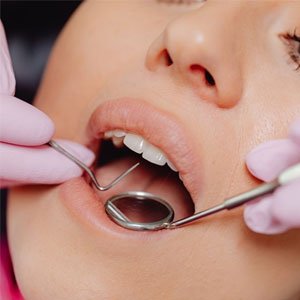
Check-Up & Cleaning
Professional Cleanings: Even with diligent at-home oral care, there are areas in the mouth that can be challenging to reach and clean thoroughly. Professional dental cleanings help remove plaque and tartar buildup, reducing the risk of cavities and gum disease. Dental hygienists use specialized tools to clean areas that may be missed during regular brushing and flossing, contributing to a cleaner, healthier mouth.
Gum Disease Prevention: Regular dental check-ups are crucial for preventing and managing gum disease. Dentists assess the health of your gums during check-ups, looking for signs of inflammation or infection. Early detection and intervention can prevent the progression of gum disease, preserving both your oral health and overall well-being.
Oral Cancer Screening: Dental check-ups often include an oral cancer screening, which is essential for early detection and treatment. Dentists examine the mouth, throat, and tongue for any abnormalities or signs of oral cancer. Early diagnosis significantly improves the chances of successful treatment, underscoring the importance of regular check-ups in maintaining overall health.
Personalized Oral Health Education: During dental check-ups, dentists and dental hygienists provide personalized oral health education. They offer advice on proper brushing and flossing techniques, recommend oral care products, and address any concerns or questions the patient may have. This guidance empowers individuals to take control of their oral health between appointments.
